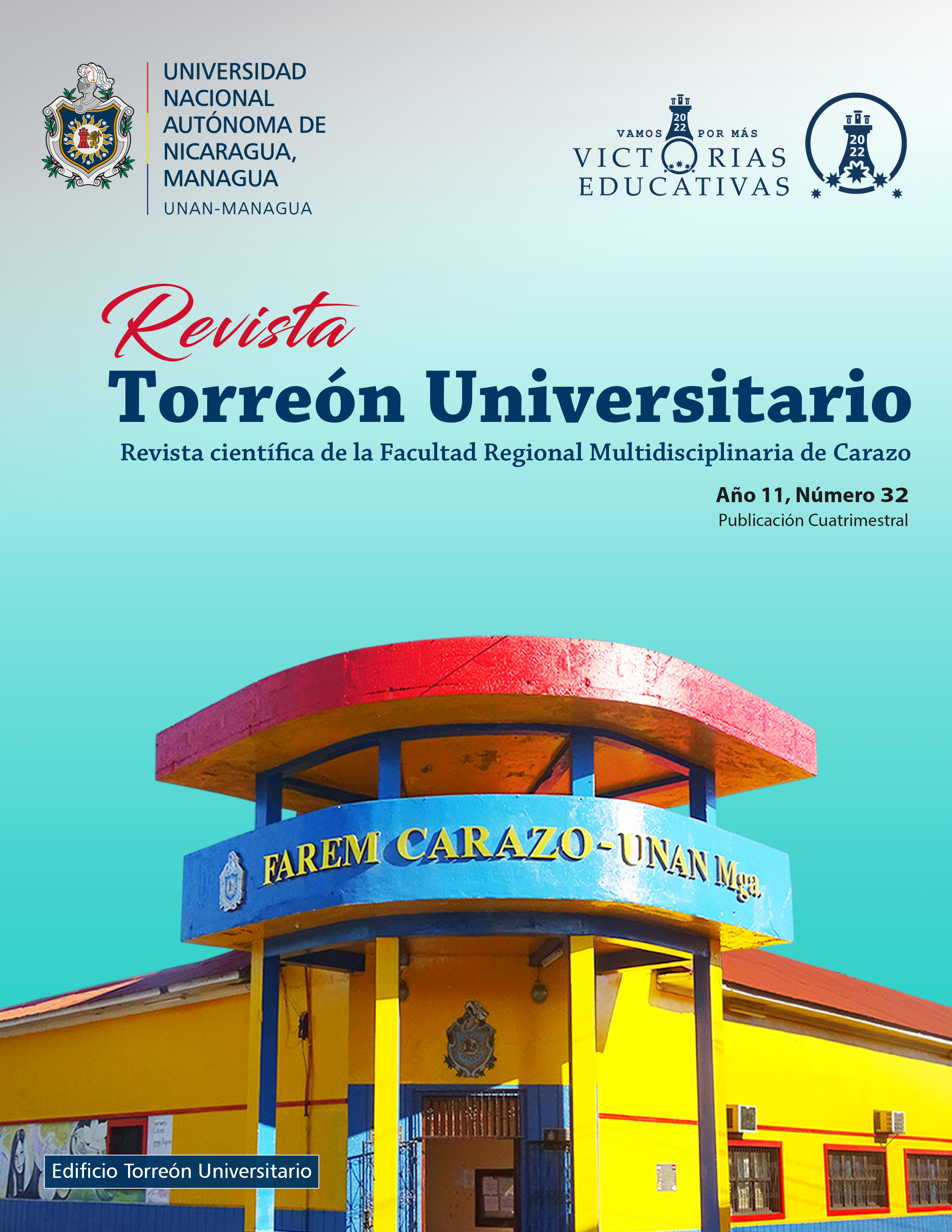Quality management in the Continuing and Postgraduate Education Unit (QMCPEU) of the Regional Multidisciplinary Faculty of Carazo, National Autonomous University of Nicaragua, Managua.
DOI:
https://doi.org/10.5377/rtu.v11i32.14974Keywords:
Quality management, educational quality models, quality deployment function, service cultureAbstract
The purpose of the research is the analysis of the factors that determine quality management at the Continuous and Postgraduate Education Unit (QMCPEU) of the Regional Multidisciplinary Faculty of Carazo, of the National Autonomous University of Nicaragua, Managua, from the perspective of the actors involved; and students, teaching staff and management teams, considering that institutions of higher education at the graduate level should establish a program of continuous improvement.
The study involves the description of the context of quality management in higher education, the approach of the factors for
quality management, the knowledge of the perception of quality management, through the triangulation of information between
governing bodies, users, and teachers, in addition to the opinion of experts in the area of study.
As for the methodology, this research is developed under a positivist paradigm with a quantitative approach, so the data provided by the key actors are described and analyzed.
As a result, it was found that the QMCPEU faces limitations related to curricular improvement, human talent management, administrative and financial efficiency, the effectiveness of the teaching-learning process, provision of infrastructures, technological equipment, graduate monitoring processes, and especially the lack of a culture of service. Finally, the proposal of the management model for quality service culture "CLOSER" is presented, which has a humanistic approach to the organization oriented towards the user.
Downloads
References
Arenas, L. y Luna, M. (2008). Calidad y competencias; Propuesta de un modelo educativo en la educación superior. Obtenido de https://www.redalyc.org/articulo.oa?id=553756884007
Cronbach, L. J. (1951). Coefficient alpha and the internal structure of tests. California: Psychometrika
Domínguez, G. (2003). El modelo de verificación de escenarios organizacionales (VERO) y su aplicación a programas de formación multimedial. Revista Complutense De Educación, 75 - 138.
Escobar, J., & Cuervo, A. (2008). Validez de contenido y juicio de expertos: una aproximación a su utilización.
Gento, S. (2002). Instituciones educativas para la calidad total. Madrid: La Muralla.
Hernández, R., Fernández, C., & Baptista, P. (2014). Metodología de la investigación. México D.F: McGraw-Hill.
Pichardo, J. (2007). El estudio de las expectativas en la universidad: análisis de trabajos empíricos y futuras líneas de investigación. Revista electrónica de investigación educativa, 27.
UNAN, Managua. (2004). Reglamento del Sistema de estudios de Posgrado y educación continua. Managua: UNAN, Managua.
UNAN, Managua. (2015). Plan Estratégico Institucional 2015-2019. Managua: Tutecotzimí
Published
How to Cite
Issue
Section
License
Copyright (c) 2022 National Autonomous University of Nicaragua, Managua.

This work is licensed under a Creative Commons Attribution-NonCommercial-NoDerivatives 4.0 International License.
Los autores que publican en esta revista están de acuerdo con los siguientes términos.
- El autor o los autores de los artículos, ensayos o investigaciones conceden a la Universidad Nacional Autónoma de Nicaragua, Managua (UNAN-Managua) los derechos de edición (copyright) del trabajo enviado, por consiguiente la Universidad cuenta con el derecho exclusivo para publicar el artículo durante el periodo completo de los derechos de autor.
- Estos derechos de autor/ autores autorizan a la Revista Torreón Universitario y a la Universidad editar y divulgar/publicar el artículo en dicha Revista, incluyendo reproducción impresa y electrónica, el almacenamiento, recuperación y cualquier otro tipo de publicación, y fuentes de información secundaria como servicios de resúmenes y bases de datos, así mismo la facultan a proteger el artículo contra el uso no autorizado para su difusión por medios impresos o electrónicos (PDF, HTML, EPUB, XML u otros).
Licencia para el uso del contenido
La revista hace uso de la Licencia Creative Commons Atribución-NoComercial-SinDerivar 4.0 Internacional.
Bajo esta declaración:

Este revista está sujeta a una licencia de Creative Commons Reconocimiento-NoComercial-SinObraDerivada 4.0 Internacional. Puede ser copiada, distribuida y transmitida públicamente siempre y cuando se cite al autor y la fuente (Revista Torreón Universitario), no debe modificarse ni utilizarse con ningún fin comercial. La licencia completa se puede consultar en http://creativecommons.org/licenses/by-nc-nd/4.0/.

